The future has arrived. It is now in Copenhagen.
Tomorrow the future get a name.
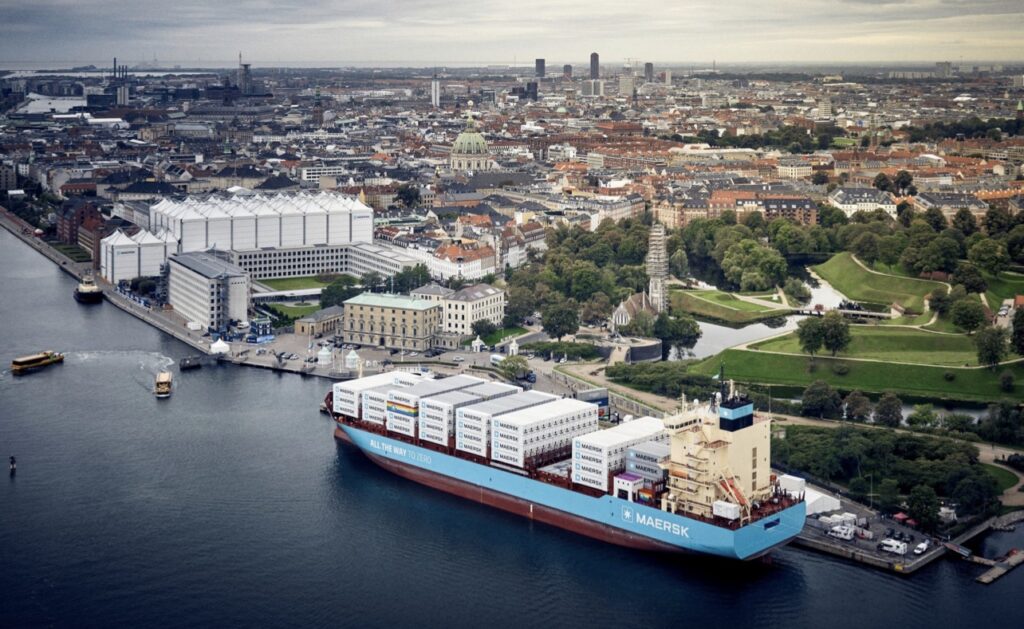
What a morning live on air welcoming our green-methanol vessel – the first of its kind, is here in Copenhagen. Our own Sam Almon Adeluwiye, Head of SoMe, talked with Leonardo Sonzio, Captain Brian Sørensen and Chief Engineer Heino Nielsen about our decarb mission and maiden voyage.

Having covered the milestones on our social media channels over the last year it was a truly special moment to see our beauty in real-life.
BRICS is an association of five major countries including Brazil, Russia, India, China, and South Africa. Distinguished by their emerging economies, the group has sought to improve diplomatic coordination, reform global financial institutions, and ultimately serve as a counterbalance to Western hegemony.
On Aug. 24, 2023, BRICS announced that it would formally accept six new members at the start of 2024: Saudi Arabia, Iran, Ethiopia, Egypt, Argentina, and the United Arab Emirates (UAE).
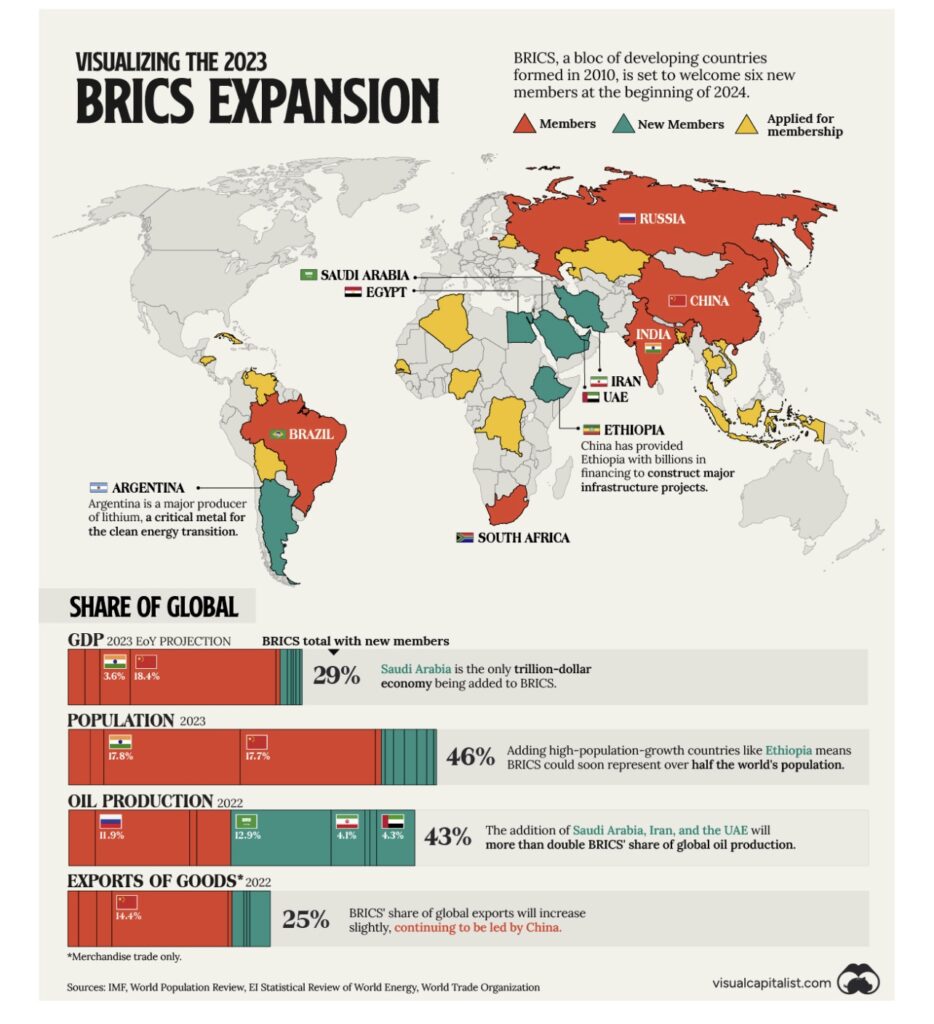
The original six BRICS members are expected to have a combined GDP of $27.6 trillion in 2023, representing 26.3% of the global total. With the new members included, expected GDP climbs slightly to $30.8 trillion, enough for a 29.3% global share.
The following table includes GDP projections for 2023, courtesy of the IMF.
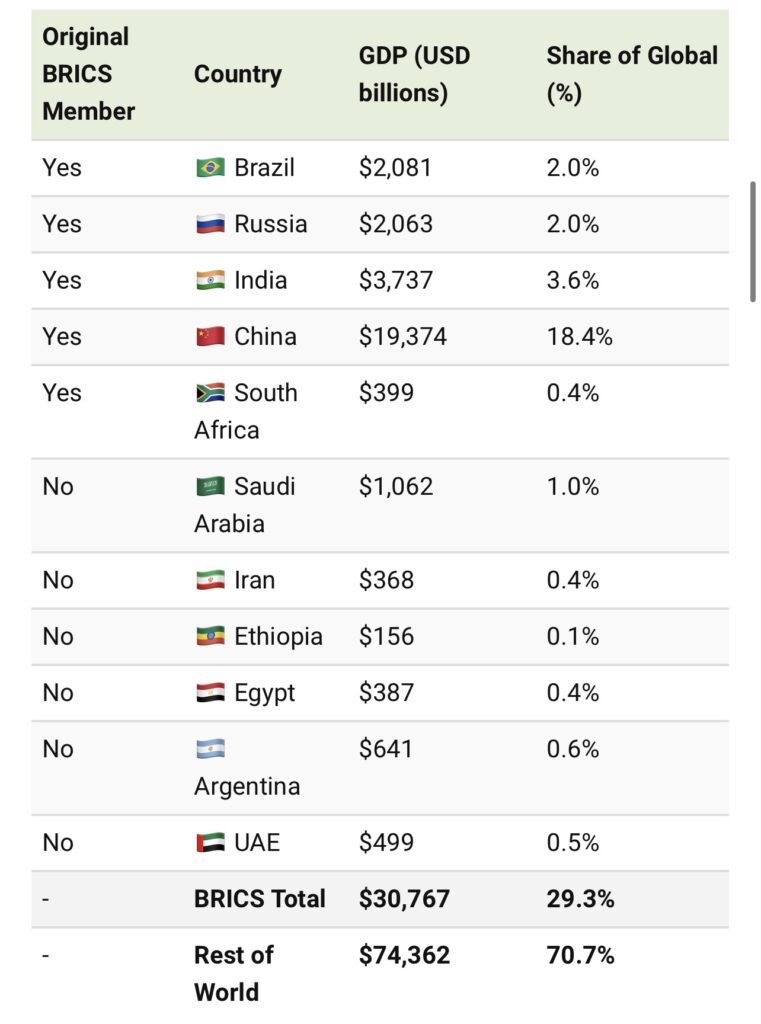
BRICS has always represented a major chunk of global poulation thanks to China and India, which are the only countries with over 1 billion people.
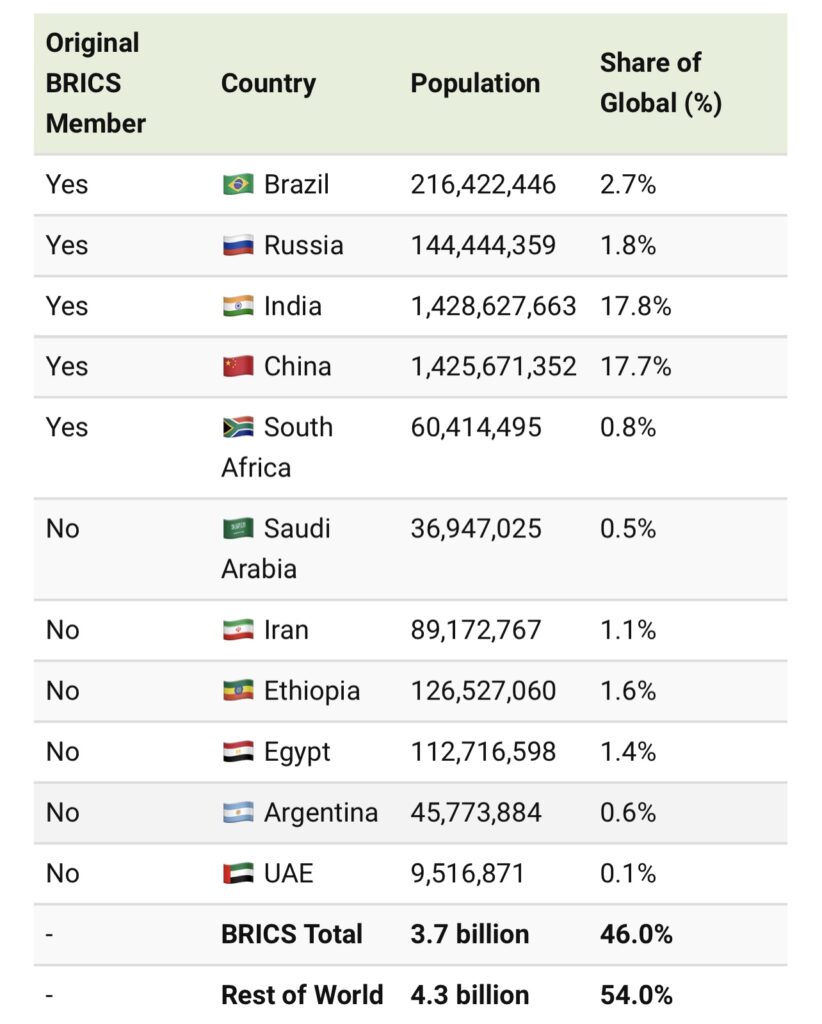
The two biggest populations being added to BRICS are Ethiopia (126.5 million) and Egypt (112.7 million). See the following table for population data from World Population Review, which is dated as of 2023.
The new potential BRICS membership area would today represent 25.1 % of global exports and 43.1% of the worlds oil production.
Read more here: Article
Source:VisualCapitalist
Interesting paper on the effect of Rules of Origin on Preferantial Trade Agreements.
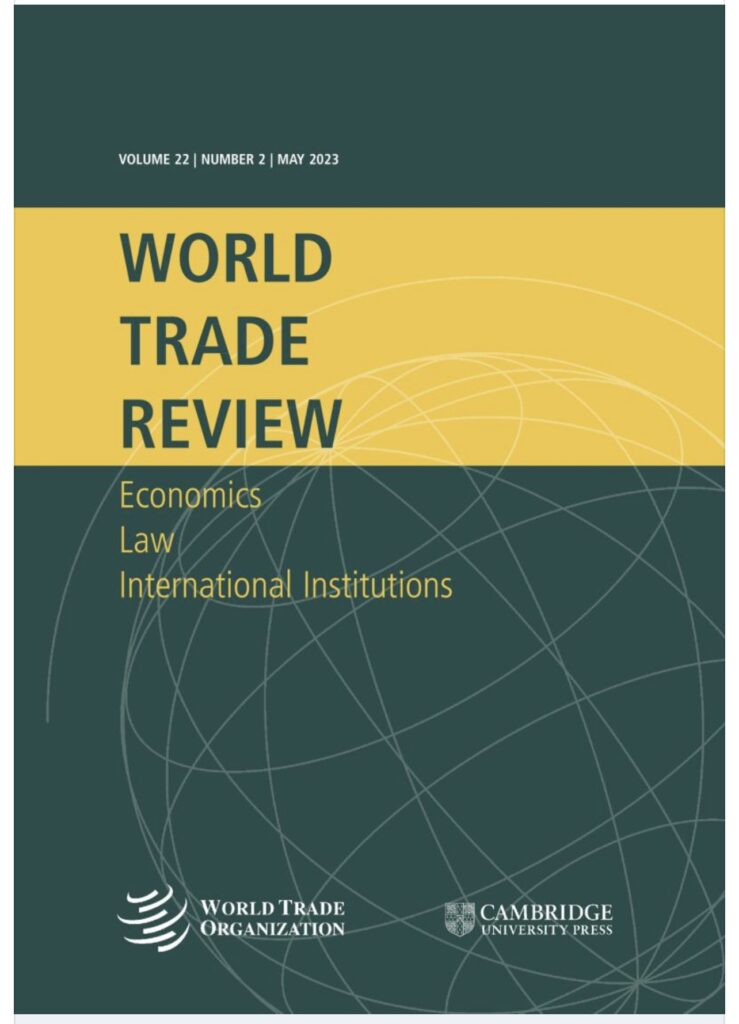
This paper from Karin Gourdon and Jaime de Melo on the effect of Rules of Origin on Preferential Trade Agreements is published in the World Trade Review issue in honour of Alan Winters.
Results display wide heterogeneity across different categories of PSRs attached to preferential margins, with more flexible PSRs associated with a significantly stronger trade effect compared to more restrictive ones where exporters do not have a choice among PSRs or have to satisfy multiple PSRs. A simulation exercise reveals that a radical simplification reform leading to the adoption of flexible PSRs providing alternative choices to prove origin would have increased global trade under PTAs on average by between 2.7 and 4% during the sample period.
Read more here: Report
Source:WTO/CambridgeUniversity






You must be logged in to post a comment.